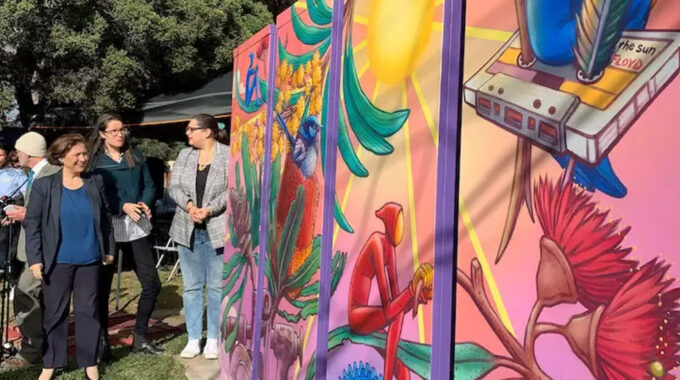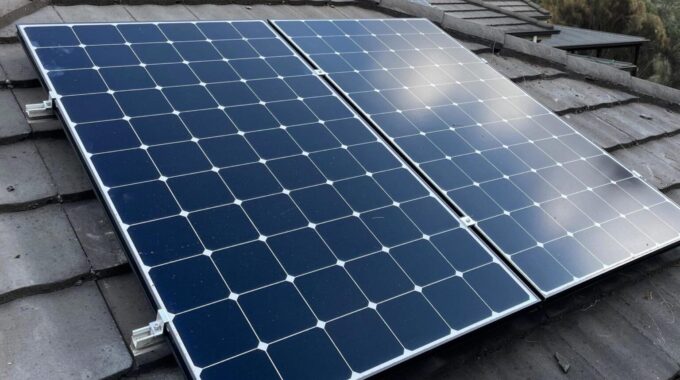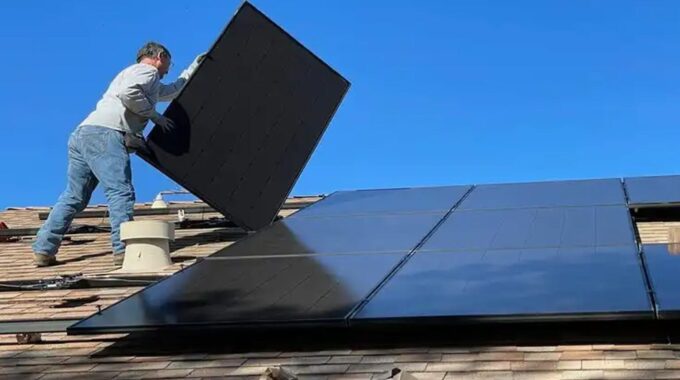After Raising $100 Million in Capital, Bluestar Enters the Australian Market for Solar, Wind, and…

Community Battery Unveiled in Melbourne of $1m
Approximately 200 homes in Melbourne’s inner north are anticipated to receive solar power from a community battery that is the size of four fridges as part of an effort to incorporate more renewable energy into the network.
After a proposal from the not-for-profit Yarra Energy Foundation (YEF), the technology has been installed as part of the state government’s $11 million Neighbourhood Battery Initiative.
A community group launched a battery in Yackandandah, north-east Victoria a year ago, which is similar to this one.
Ausgrid, a network provider, has also installed a handful of batteries across Sydney.
Possibly the world’s first “inner-urban” community battery, the North Fitzroy battery is being touted as a major innovation.
It has 284 kilowatt-hours of storage and will hold excess power from local solar panels during the day to feed it back at night.
Everyone connected to the part of the sub-network will have their power provided by the battery, no matter which energy retailer they use, if they have solar panels installed, or if they own the home.
“It was the first generation of community batteries,” said Chris Wallin, who spearheaded the project.
“It stores energy during the day and supplies in the evening peak, to reduce emissions from coal and brown coal generation,” he said.
Its purpose is to sustain the environment in a financially sustainable way.
The world’s top scientists have found, in repeated and consecutive reports, that reducing carbon emissions is essential in preventing catastrophic global warming.
The battery is in Yarra, which is located in inner-Melbourne City. Yarra was one of the first places in the country to declare a climate emergency. Its goal is to achieve net zero emissions for the entire Yarra area by 2030.
“Returning power and energy back to communities and neighborhoods is something this demonstration is all about,” said State Energy Minister Lily D’Ambrosio.
The next step in a ‘completely new world’ is battery.
amid soaring energy prices for Australian consumers, exacerbated by Russia’s war in Ukraine and fears Victoria will run out of gas.
The independent Victoria Energy Policy Centre earlier this week recommended that the new federal government spend part of the $20 billion Rewiring the Nation plan to speed up the development of more batteries and storage.
“The battery is a fabulous illustration of both the opportunities and the challenges that are taking place as we transform our electricity and gas system dramatically over the next 30 years,” Tony Wood of the Grattan Institute told the ABC.
“Projects like the Neighbourhood Battery Initiative are important to answer questions about what technologies would best transition the country away from fossil fuels,” said Mr Wood, who is the director of the energy program at the institute.
Who connects to what, who buys and sells electricity. [It’s a] completely new world and understanding that world is going to be really important
Mr. Wood, Director of the energy program
It is unlikely that it will have any impact on electricity prices in the short term.
However, Mr. Wood stated that community storage of solar energy is more likely to be cost-effective than individual homes trying to store the surplus energy.
He said that it also means that people who don’t have a roof or are renting can get access to these sorts of ideas.
“It’s exciting to be a part of these baby steps towards something bigger,” said Laura Brinson, a resident of North Fitzroy.
She said that the benefits of the solar panels would be seen first-hand by the people in her block of units, particularly as some home owners with solar panels had been wanting to make sure their energy did not go to waste.
“Eventually that will drive our prices down” she said, acknowledging that would not happen immediately.
The technology does not come cheap in the short term.
The state government provided $800,000 for the North Fitzroy battery with additional funds coming from provider CitiPower, the City of Yarra and YEF totaling around $1 million.
Mr Wood said that technology would continue improving, becoming cheaper and more accessible.
The goal of the government, according to the Energy Minister, is to prove that community batteries can become more than a pilot or demonstration.
They can be a mainstream feature of the way that we make our own energy as a community and how we share it when we need it the most, said Ms D’Ambrosio.
On Wednesday, Ms D’Ambrosio will attend an emergency meeting of the country’s energy ministers to respond to the growing gas and electricity crisis.
A stoush has erupted between new federal Energy Minister Chris Bowen and Nationals Leader David Littleproud over the topic, with both trying to lay the blame at the feet of their opponents.



